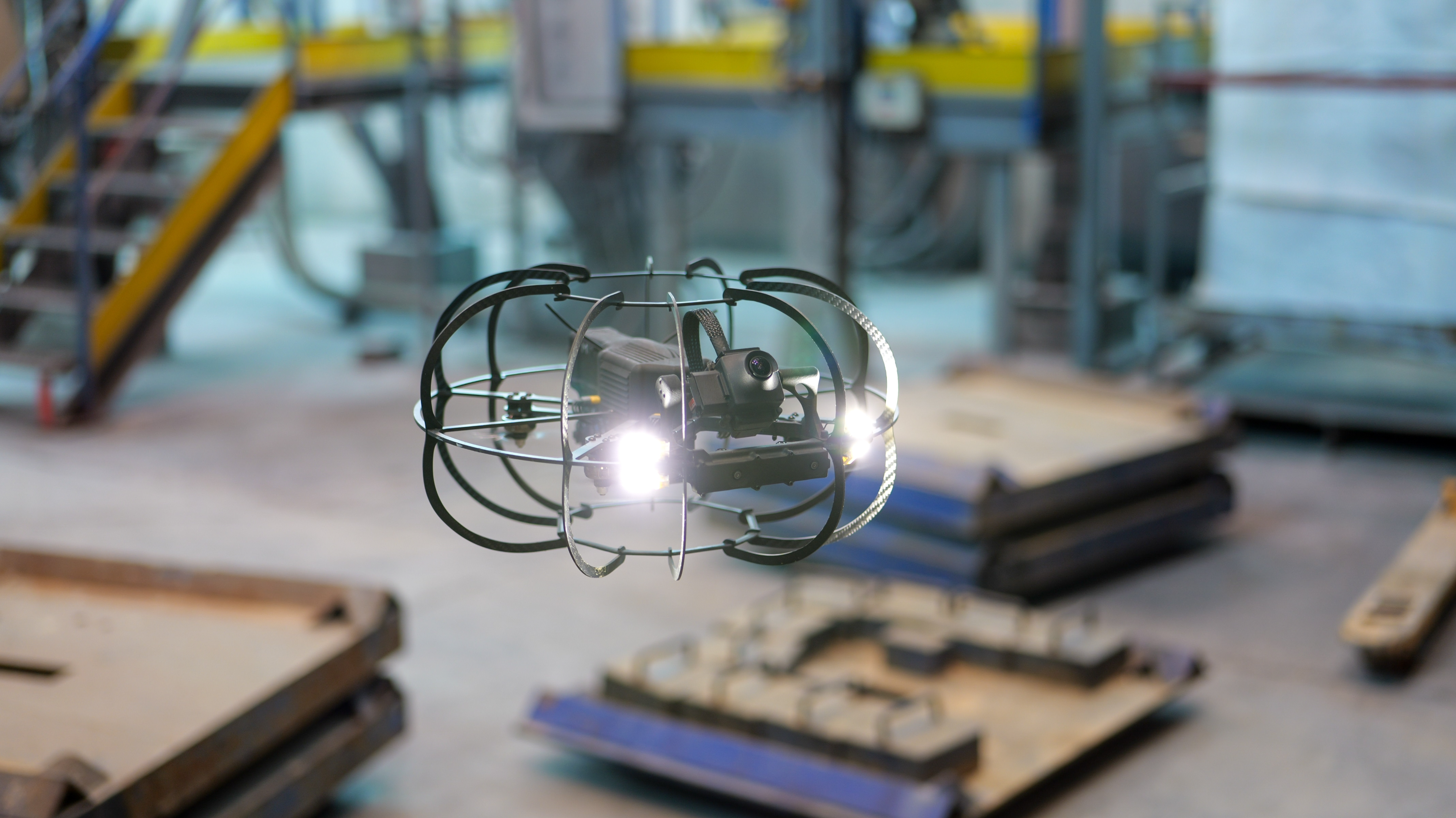/reboot/media/95268e66-9e53-11ed-b306-0242ac14000b/ba787124-91ff-11ef-a4fe-0242ac120013/1-1-design-sans-titre-26.png)
How can a drone save a company money?
The use of drones in industry has dramatically transformed the way many companies manage their inspections and maintenance. These aerial devices, capable of providing real‑time data, have made it possible to optimize complex, often costly processes, while reducing risks to workers. Whether in energy, construction or even agriculture, drones bring increased flexibility and efficiency. As drones gain in popularity, their adoption is accelerating in sectors where efficiency, safety and cost reduction are priorities. Thanks to their versatility, these technologies enable companies to make significant savings and improve productivity. The potential for cost savings is one of the main reasons why more and more companies are investing in this technology.
Reduced maintenance and inspection costs
Drones represent a real revolution in sectors requiring regular, complex inspections. They reduce equipment and labor costs, while offering greater precision, making them a must‑have solution for companies seeking to minimize maintenance costs.
No need for scaffolding or heavy equipment
Inspections of large structures or complex installations often require costly infrastructure such as scaffolding, cranes or lifting platforms. These devices are indispensable for accessing hard‑to‑reach areas, but they require significant time and resources. Drones, on the other hand, can be deployed in a matter of minutes, eliminating the need for scaffolding or other heavy equipment. This significantly reduces inspection costs and speeds up the process. What's more, drones can reach areas that traditional equipment could never easily reach, such as factory rooftops or hard‑to‑reach ducts. By eliminating dependence on these physical infrastructures, companies can save thousands or even millions of euros on large‑scale maintenance projects.
Reduced plant downtime
One of the major advantages of drones is their ability to carry out inspections without requiring facilities to be shut down. For example, in a power station or production plant, there is no need to interrupt the operation of machinery to carry out a routine inspection. Drones can fly over operating equipment and detect potential anomalies without disrupting production. This reduces downtime, a key factor in reducing financial losses. Every minute of downtime is costly, especially in industries where production continuity is paramount. Drones therefore help maintain productivity while guaranteeing high‑quality maintenance.

More frequent, more precise inspections: preventing costly breakdowns
Drones enable more frequent inspections, boosting companies' ability to prevent costly breakdowns through early detection of anomalies. What's more, they provide much more detailed data than traditional human inspections.
Early detection of anomalies
High‑resolution sensors and on‑board cameras on UAVs enable detailed inspection of industrial structures. They are able to detect small cracks, rust spots or other signs of degradation that may go unnoticed during a manual visual inspection. This early detection enables companies to act quickly to resolve problems before they become critical, avoiding major repairs and prolonged downtime. What's more, thanks to advanced image processing technologies, drones can provide analytical data that can predict the evolution of these anomalies and adjust maintenance operations accordingly.
Reduced reactive maintenance costs
By switching from reactive to preventive maintenance, companies can avoid the unexpected costs associated with emergency repairs. Drones enable regular monitoring of equipment status and anticipation of maintenance needs. This prevents unexpected breakdowns, which can lead not only to high repair costs, but also to significant loss of productivity. Companies that adopt this proactive approach can extend the life of their equipment, while maintaining a high level of performance.
Optimized use of human resources
The efficiency of drones goes beyond reducing material costs. They also optimize the use of manpower by limiting human intervention to the most critical tasks.
Fewer personnel required
Traditional inspections often involve an entire team of qualified technicians to carry out complex and potentially dangerous tasks. Drones, on the other hand, require just one trained operator to pilot the device and analyze the data collected. This means fewer staff exposed to risk, and consequently lower labor costs and insurance premiums. Fewer staff involved in high‑risk tasks also means lower costs for training and personal protective equipment.
Faster, more flexible mobilization
Traditional inspections can take several days to set up, with heavy logistical preparations. Drones, on the other hand, can be deployed quickly and easily, even in difficult environments. Their mobility and flexibility enable
companies to react quickly to emergencies or schedule more frequent inspections without disrupting day‑to‑day operations. This rapid mobilization not only improves overall efficiency, but also reduces the costs associated with human intervention. The flexibility offered by drones also enables them to be used in unforeseen situations, guaranteeing a rapid response to operational challenges.
An indispensable tool for tomorrow's businesses
Drones have become an essential tool for modern businesses, particularly in sectors where regular inspections and maintenance are crucial. By reducing the costs associated with setting up complex inspection infrastructures, minimizing plant downtime, and optimizing the use of human resources, these devices enable companies to make considerable savings. What's more, their ability to deliver more frequent and accurate inspections helps prevent costly breakdowns and extend equipment life. As drone technology continues to evolve, its potential to improve productivity and safety continues to grow. These devices are becoming indispensable tools for any company seeking to remain competitive in an increasingly digitalized world. So it's becoming clear that drones are no longer a luxury, but a necessity for tomorrow's businesses.
:strip_exif()/reboot/media/95268e66-9e53-11ed-b306-0242ac14000b/7e1d7cf8-a2df-11ed-b843-0242ac14000b/1-1-multinnov-pour-fond-blanc.png)
:strip_exif()/reboot/media/95268e66-9e53-11ed-b306-0242ac14000b/7e1d7cf8-a2df-11ed-b843-0242ac14000b/1-1-multinnov-pour-fond-blanc.png)
:strip_exif()/reboot/media/95268e66-9e53-11ed-b306-0242ac14000b/2d1bc50a-a30a-11ed-b140-0242ac14000b/1-1-img132.jpg)
/reboot/media/95268e66-9e53-11ed-b306-0242ac14000b/0356b896-f35a-11ee-9e20-0242ac120013/2-2-inspection-drone.jpg)
/reboot/media/95268e66-9e53-11ed-b306-0242ac14000b/58f644ac-5628-11ef-83ef-0242ac120012/1-1-p1002011.jpg)